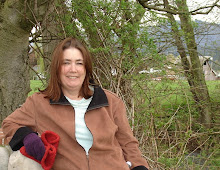After a year and a half of working on the Small Farm Life Along the Cascades Range ethnography project I have clarity about one very important problem in need of a set of education, advocacy and entrepreneurial solutions.
We need small farm and suburban yard clean-up and toxic waste awareness and reclaimation programs. It really hasn't been all that long in a cultural historical sense that we have had garbage service let alone the knowledge that we need about properly disposing of toxic waste.
Yesterday I found dead old oil cans in our shed and dampened spilled slug bait and weed killer that filled the drawers of an old cabinet. I was able to clean up a good part of the spilled oil but not all of it but guess what, now it's in a equine senior feed bag and I haven't a clue what to do with it. Last year I lived on a farm that had an old and unused underground gas tank only 50 feet from the well we used for household cooking and bathing, old car batteries sitting outside in the rain, insulation from an old trailer strewn around the property after a wind storm and reams of plastic sheeting decomposing under a thin layer of top soil, a legacy from a short-lived attempt at flower farming.
This is just two farm properties among thousands that have been polluted and now pose hidden dangers. What else is out there? How do we find it? What do we do about it?
As beginning farmers take over older farms that are changing hands and reclaim abandoned farms to create new ones and as farm land is turned over to suburban dwellers who grow kitchen gardens, these new farmers need to protect themselves, their animals and customers from from these unseen and forgotton poisons.
We need research, advocacy, education and entrepreneurial solutions to address the hidden dangers caused by forgotten and unseen toxic waste in our farm and garden soils.
I received a survey from Waste Management in my e-mail yesterday, now I know what to tell them about their service and how to improve it. Rural communities need education and affordable, consistent and dependable toxic waste testing, removal and disposal services. These once or twice a year collection activities just aren't enough to meet the need.
Cynthia
The Wanna Be Farmer
Pacific Ethnographic Research Center
Saturday, October 3, 2009
Hidden dangers: A call for small farm and yard toxic waste awareness and reclaimation programs
Subscribe to:
Post Comments (Atom)







No comments:
Post a Comment
Thank you for commenting on my blog.